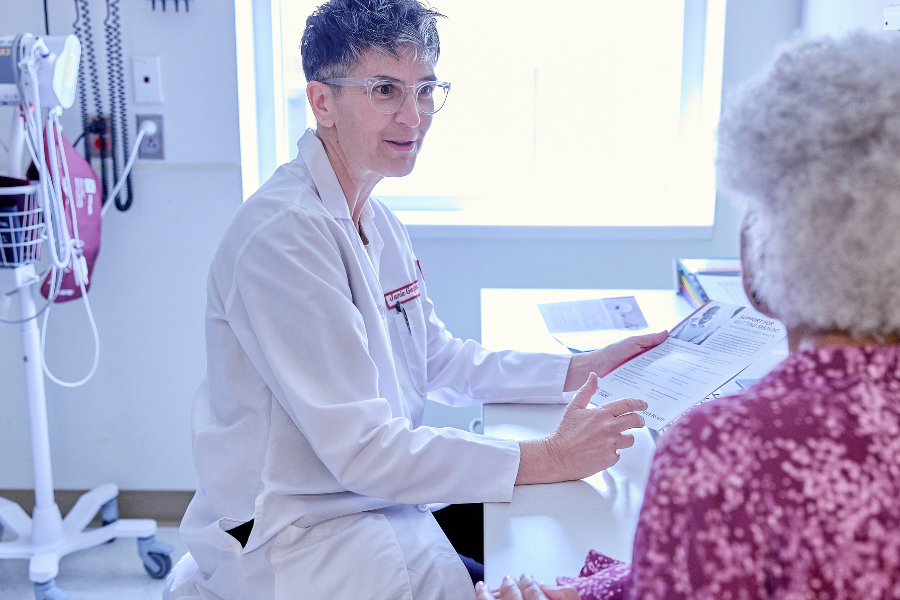Colonoscopy has been helping to save lives and reduce the death rate from colon cancer. That is great news. And good for you - you got your checkup. But after an examination, about one out of four (25%) people that have had a colonoscopy screening are told that they have one or more “polyps”. In this blog I will try to answer some of the most frequently asked questions (FAQs) about colon polyps.
I Was Told I Have a Colon Polyp – Now What?
View All Blog PostsFrequently Asked Questions
A polyp is a small growth that sticks out from the lining of the colon (large intestine). Polyps appear as an irregularity of the surface of the colon when it is being examined by the doctor performing the colonoscopy. They range in size from 1/16 of an inch to several inches in diameter. Polyps can look like a slight skin tag or a wart when they are small. When they get bigger they can take several shapes, including flat (also called “sessile”) or shaped like a mushroom (called “pedunculated”). When examined under a microscope by a pathologist, they can be determined to be normal tissue, pre-cancerous, or even contain cancer.
Polyps can contain normal tissue, can be pre-cancerous, or can actually have cancer in them. Polyps called hyperplastic have normal looking cells under the microscope. They are totally benign and don’t become cancerous. Polyps called adenomatous are also benign (not cancer), but if they are allowed to grow over a period of time, they can change into a cancer. No one knows whether a certain adenomatous polyp will become a cancer or not, or how fast the transformation could occur. Therefore, all of these types of polyps should be removed. There are different types of adenomatous polyps. Most adenomas are called tubular, villous, tubulo-villous, or serrated. This is determined by the examination under a microscope. Polyps with cancer can have just a small amount or be totally taken over by the cancer. This is determined by the pathologist and helps to determine what happens next.
Most polyps are removed at the time of the colonoscopy. They are collected and sent for microscopic examination by a pathologist. Sometimes, because of the size, shape, or location of a polyp, it is not able to be removed. This may require surgery or removal by colonoscopy at an advanced endoscopy practice such as at Temple University Hospital. Many doctors who do endoscopy refer their patients with difficult polyps to facilities like ours. Sometimes a polyp may have been partially removed, but for technical reasons it could not be completely removed.
Some questions that are good to ask after your colonoscopy are:
- Did I have any polyps?
- Were they removed?
- Were they completely removed?
This is another great question to ask your doctor! The answer will depend on the number of polyps, the size of the polyps, how well cleaned out your colon was, and what the polyps look like under the microscope. The final answer may not be available until after the pathology results are available. If the polyp has a small amount of cancer, or the colon was not well cleaned out, you may need a colonoscopy in a few months. But most polyps need to be followed up with colonoscopy in three to five years. If there is no family history of colon cancer or prior pre-cancerous polyps, and the polyps are “hyperplastic”, then you might not need another colonoscopy for 10 years! So the interval until your next colonoscopy is an important issue that you need to discuss with your doctor.
If you have been told that your polyps are adenomatous or had cancer in them, then members of your family have a higher risk of developing cancer than average risk people. This is because there is a genetic component to developing colon cancer. The risk affects your first degree relatives (parents, brothers and sisters, and children). They should discuss this issue with their doctors and be sure to get colonoscopy screening performed. We usually recommend that first degree relatives get colonoscopy starting at 40 years of age or 10 years younger than the person found to have an adenomatous or cancerous polyp.
The vast majority of colon polyps are NOT cancer. They do have the risk to turn into cancer over a period of time if left in you. That’s why we remove them. And remember, once they are removed, they can never become cancer. However, some polyps do have cancer in them and if that is what you were told, you will need to have a discussion with your doctor about the next steps. Many times just removing the polyp cures the cancer and you are done. However, sometimes the cancer is more advanced, and surgery, chemotherapy, or radiation therapy may be needed.
Dysplasia is a change in the appearance of the cells in a polyp when viewed under a microscope. It is usually described as low grade or high grade. Low grade dysplasia is what most adenomatous polyps contain. This is not cancer, but could become cancer over a period of time. You don’t have to worry about this type of dysplasia. High grade dysplasia is the beginnings of cancer in the surface of the polyp. If your polyp was completely removed and there was no cancer, there is nothing to worry about. However, we keep a close eye on patients who have had high grade dysplasia, and the interval until your next colonoscopy may be shorter.
Conclusion
Congratulations on getting your colonoscopy! If one or more polyps were found, the examination may have already saved your life. Because you have had a polyp found, you and perhaps your family will need careful follow-up. Here are some good questions to ask your doctor:
- Were the polyps removed?
- If so, were they completely removed?
- Did any of my polyps contain cancer?
- When should I get my next colonoscopy?
- What should I tell my family members?
The information on this Site is for informational purposes only and is not intended as a substitute for medical professional help, advice, diagnosis or treatment. Always seek the advice of your physician or other qualified health care provider with any questions that you have regarding your medical care. For more information, see our Terms of Use.
Benjamin Krevsky, MD, MPH
Dr. Krevsky is a gastroenterologist with clinical interests in colonoscopy, GERD, constipation and capsule endoscopy. A Professor of Medicine at the Lewis Katz School of Medicine at Temple University, Dr. Krevsky is an active clinician and educator, having published over 200 papers, audiotapes and books. He is also a member of several organizations, including American College of Gastroenterology, American Society of Gastrointestinal Endoscopy, and American Gastroenterological Association.

